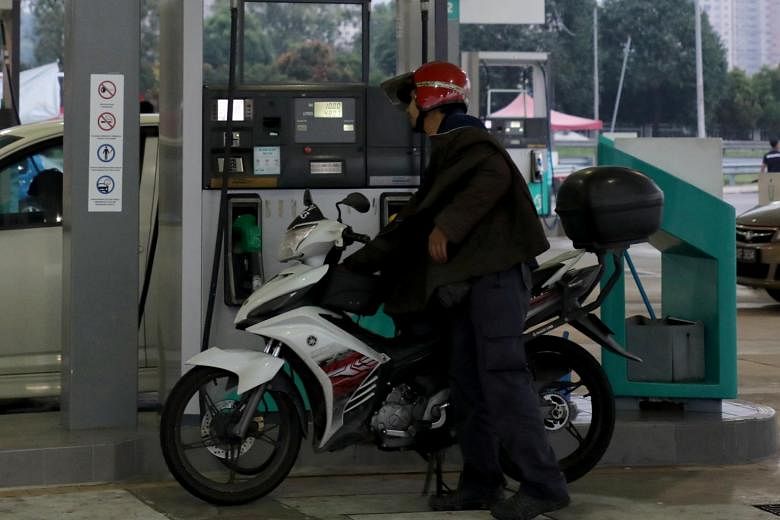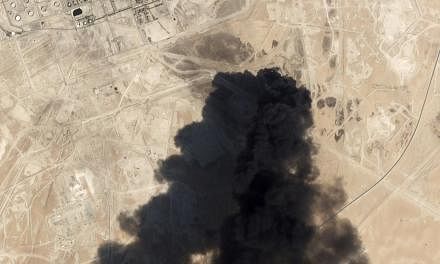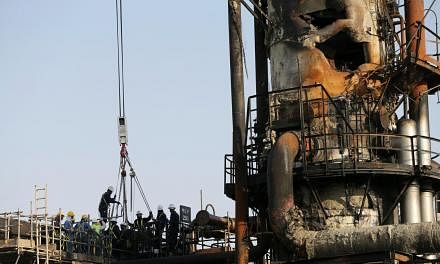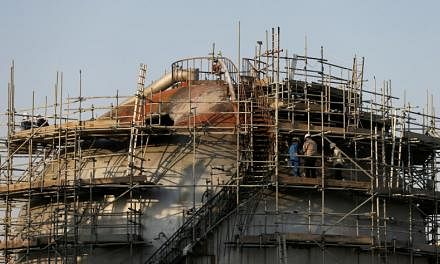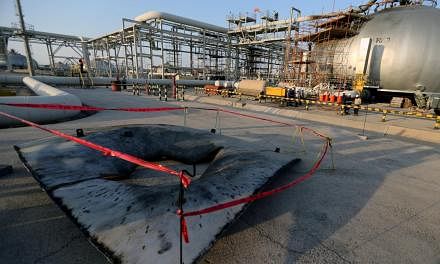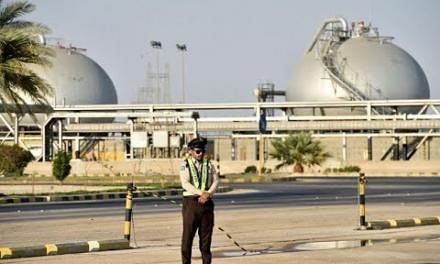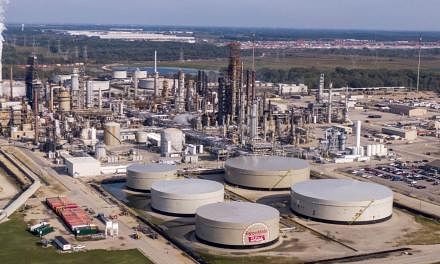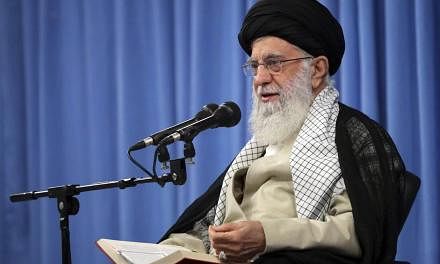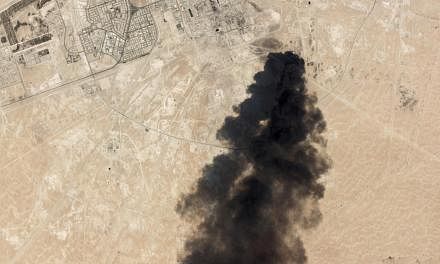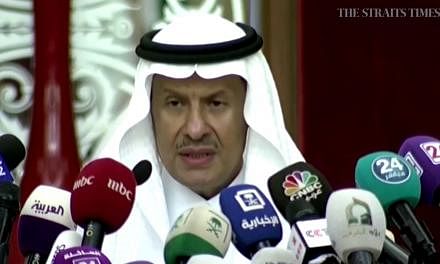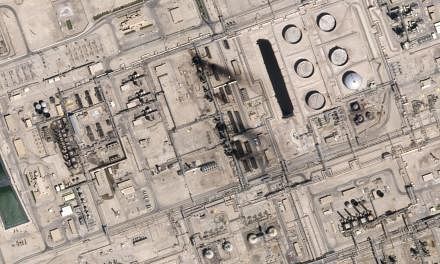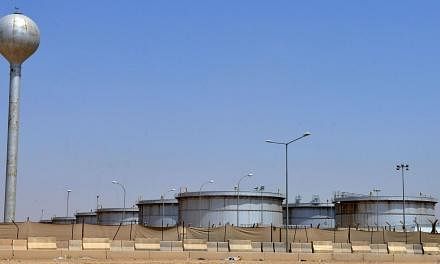PUTRAJAYA (THE STAR/ASIA NEWS NETWORK) - Any significant drop in Saudi Arabia's oil production due to the attacks on its facilities will have an upward effect on global oil prices, Malaysian Prime Minister Mahathir Mohamad said, but noted that the government would increase its fuel subsidies when world oil prices go up sharply.
Commenting on the coordinated strikes on key Saudi oil facilities which have reportedly disrupted about half the kingdom's oil supply, Tun Dr Mahathir said: "If they (Saudi) have to cut production by, well they say up to one million barrels, surely it will have an effect on oil prices worldwide."
He said this at a media conference after attending the Putrajaya Boat Race 2019 on Sunday (Sept 15). Last Saturday, strikes on key Saudi Arabian oil facilities, which the US said Iran was to blame, caused a loss of about 50 per cent of the kingdom's oil output, or 5 per cent of the global supply.
Asked whether there was a need for the government to review the ceiling price for RON95 petrol which is currently at RM2.08 (S$0.70) per litre, Dr Mahathir smiled and said: "If you want me to review, then I will review."
He said that in the past, the government would increase its fuel subsidies when world oil prices went up sharply.
"In Malaysia, when oil prices go up, we give subsidy; if in the United Kingdom, if the (world) oil price goes up, they increase the tax, and their people never complain.
"However, the price of oil (fuel) in Malaysia is among the cheapest in the world," he said.
Since earlier this year, the government capped the prices of RON95 petrol and diesel at RM2.08 and RM2.18 per litre respectively, in a move to stabilise fuel prices and reduce the people's cost of living. There is no ceiling price for RON97, a higher grade petrol.
AmBank group chief economist and head of research, Dr Anthony Dass, said the impact of the strikes on oil prices could reach as high as US$10 per barrel, and would depend on how fast Saudi Arabia is able to restore production.
"The other issue is the implications from this attack, or who was behind this attack even if Saudi is able to restore production," he said.
"If any neighbouring countries were behind it, the oil price could spike more than US$10 to probably US$20 or even higher should there be retaliation by Saudi," he added.
If the incident has a short-term impact of less than a month, the impact on Malaysia will be neutral, he said.
Dr Dass said it was unlikely for pump prices to move up, with the exception of RON97.
He said that should oil prices stay high for a longer period, it should bode well for Malaysia.
"For every US$10 a barrel increase in the price of oil, it would widen the trade surplus by about 0.4 per cent of the gross domestic product (GDP), which would help to keep the current account in a comfortable surplus.
"And the government still collects sizeable oil revenues. This would provide more fiscal room and reduce the need to significantly cut spending.
"It is estimated that the government will gain RM300 million in additional revenue for every US$1 increase above the US$70 per barrel average," he said.
Higher oil prices also bode well for the ringgit, as its performance is generally correlated to the movement of the commodity, said Dr Dass.
The local unit remained bogged down by external risks, but such threats were being cushioned by the strengthening oil prices, he said.
"The ringgit is expected to be on a stronger footing. While high oil prices benefit the government, its subsidies for fuel will also rise in tandem," he said.
"Any removal of the subsidies would impact the consumers at the pump and increase inflation."
As the retail fuel prices are determined by a float mechanism, the impact on retail pump prices will likely increase across the board, as the government is not expected to absorb the entire rise, as it will add pressure on its fuel subsidy, he added.
Socio-Economic Research Centre (SERC) executive director Lee Heng Gui said it was too early to gauge the actual impact on crude oil prices after the attack on Saudi oil facilities.
He said that whether the price could jump as much as US$10 per barrel as reported by CNBC was only an estimate.
"It's too early to tell. There is a need for actual and full assessment of the damage. Whatever happened is likely to be short-lived, unless it is a permanent damage," he said.
Mr Lee said that it will send some shock to the oil market and oil price, but the impact would depend on the extent of the damage and the time needed to repair and get operations back up.
Petrol Dealers Association of Malaysia (PDAM) president Khairul Annuar Abdul Aziz said that oil prices should spike up significantly.
"Crude price will be affected more immediately than refined fuel, so expect delayed increase in the pump price of RON97," Datuk Khairul Anuuar said, but added that it cannot yet be said by how much.
RON95 and diesel prices will remain due to the price cap, he said, noting "the government will be burdened by a higher subsidy bill".
The United States might use its oil reserves to offset any disruption in supply, Mr Khairul Annuar said, but added that it was uncertain if this would be sufficient.
In George Town, Federation of Malaysian Manufacturers Penang chapter chairman Ooi Eng Hock hoped fuel prices at the pump would stay the same.
"It will be a huge negative impact on manufacturers if the prices go up. This is not just about transport cost, but many layers of the manufacturing cost will see increases.
"The ground is still quite soft. And we have the US-China trade uncertainties to deal with too. We hope the government can keep our fuel prices stable," he said.
